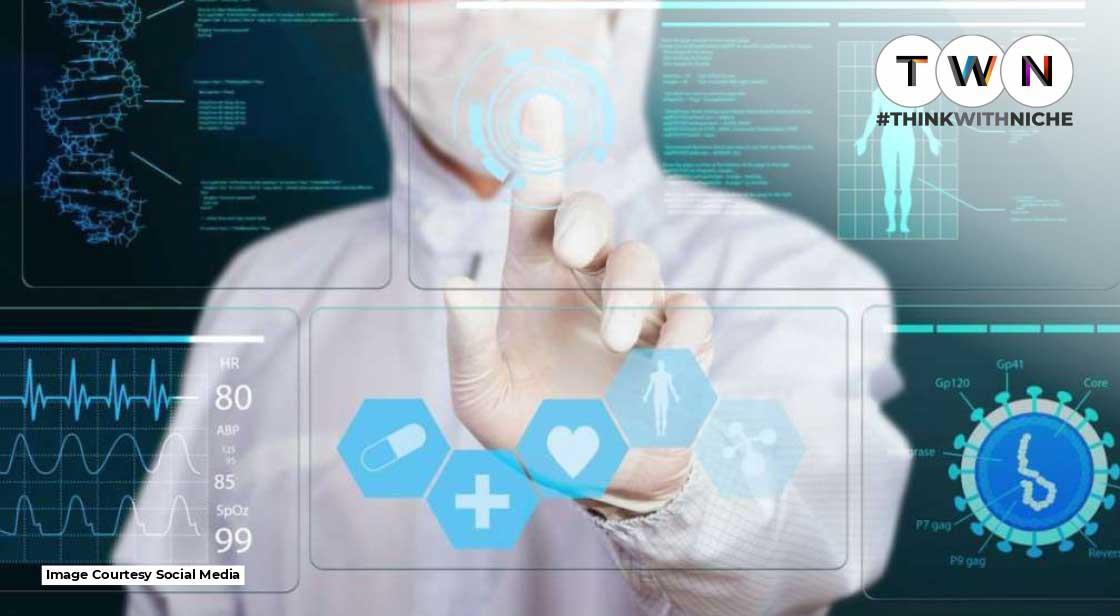
A.I. has great potential in 2022. There is much to do in healthcare but great potential for A.I. We are about to discuss artificial intelligence (AI), in healthcare and medicine. I have thought about the implications of AI for Good and am convinced that the best work will be done in healthcare and medicine.
Since the beginning of 2022, my focus has been on artificial intelligence in healthcare. It's been a great experience. There have been steady streams of news about early adoption and extensive research. Artificial intelligence is able to improve our health and well being by combining AI with smartphones, identifying cancer treatments, and predicting future outcomes.
There is potential in AI in healthcare.
"We have trained devices to see what they see." Neuroscientists claim that machines can also be trained to see things that are not visible.
Although machine-learning (ML), has been widely used in many industries, AI implementations in healthcare are still very new. AI is still a relatively new technology that has been used in hospitals and academia. The adoption of AI is slow and some employees worry that it will replace their jobs.
AI can improve our mental health if it is properly designed. Instead, AI has been used to increase our dependence on apps on our smartphones and sell more ads. There is still hope for the best. AI can be used to assess risks, diagnose accurately, and perform precise surgical procedures. AI can now be used in many medical specialties, including rural care, surgical prioritization, drug discovery and survival analysis.
A.I. in healthcare and medicine can take over the following:
It can also assess risks.
It is possible to make a diagnosis with great accuracy.
A.I. A.I. can perform precise surgical procedures.
A.I. Accessibility improvements through A.I.
A.I. A.I. can aid in early diagnosis of a condition.
A.I. A.I. in Medicine and Healthcare
Here are some examples of A.I. roles. These are changing the medical sector.
A.I. A.I. simplifies hospital care, leading to shorter hospital stays
You'll be in a new world for data integration when you reach 2022. Artificial Intelligence Algorithms search for patterns in large amounts of electronic health records data to predict future results and recommend treatments.
The hospital staff is developing early warning systems that will help them detect subtle but serious changes in patients' conditions.
Better EMR predictions
More useful treatment recommendation engines
Doctors can save more time with automation tools
Better appointment scheduling
Improvements in warning systems to detect patients who may need additional care quickly.
Better discharge decision-making
AI applications can recognize patterns and correlates in medical data that human eyes cannot. However, they can search through huge amounts of data at breakneck speeds and solve problems faster than humans. The future holds great potential for A.I. forecasting. Combining biotechnology, genomics and nanotechnology with new research, could extend people's lives for years and improve their quality of life.
New applications for smart homes, hospitals, and the management of employees' mental health will be possible with mobile, ambient, and robotic technology.
Artificial Intelligence for Psychological Health and Promoting Psychological Well-Being
Increased awareness drives increased adoption, even in the area of psychological well-being.
Mental health professionals are using artificial intelligence (AI), to improve the accuracy of diagnosis and treatment.
Artificial intelligence is being used by practitioners to ease the burden of their overburdened work schedules.
According to 84% psychologists, anxiety treatments are highly in demand.
Technology can be used to improve treatment quality and train therapists.
According to the WEF AI in healthcare aids doctors in diagnosing mental disorders sooner and making better treatment decisions. Apps and BigTech have begun to consider psychological health more in their research. Doximity allows physicians to make use of artificial intelligence to improve their practice.
Tags:
ai in healthcare, artificial intelligence in healthcare, artificial intelligence in medicine


Comments
Post a Comment